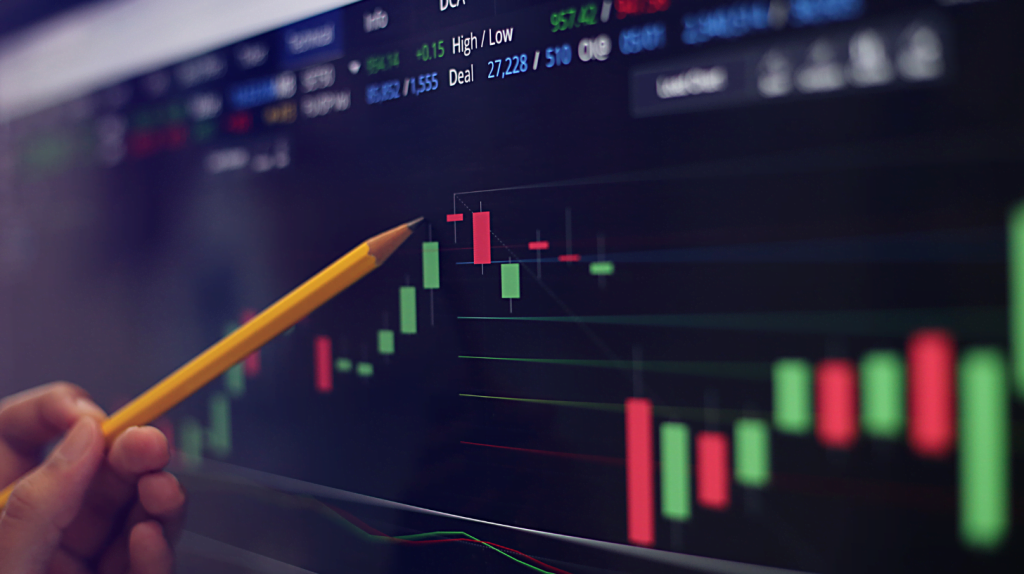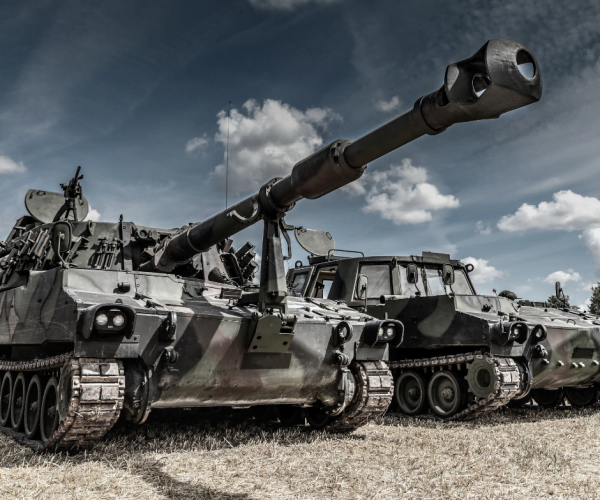Introduction
The relationship between war and cryptocurrency is a subject of great interest, particularly in light of the ongoing Russia-Ukraine conflict and its repercussions on the crypto market. With the rise of digital assets like Bitcoin and the increasing global tensions, it is crucial to understand how wars can impact the value, trading volume, and overall dynamics of cryptocurrencies.
Key Takeaways:
- Studies have shown a correlation between war and cryptocurrency prices, suggesting that global uncertainties can affect digital asset values.
- The Russia-Ukraine conflict has been observed to influence Bitcoin trading volume and returns, indicating that wars can impede market activity.
- Investors should consider the impact of war on cryptocurrency when making asset allocation and hedging decisions in order to mitigate potential risks.
- The use of cryptocurrencies as a means to evade economic sanctions during times of conflict has been documented.
- Further research is needed to fully understand the complex relationship between war and cryptocurrency and its implications on the global financial landscape.
The Link between War and Cryptocurrency Prices
The Russia-Ukraine conflict has shed light on the intricate relationship between war and cryptocurrency prices, as the Ukrainian government and its citizens seek to navigate economic sanctions through alternative currency options and blockchain-based solutions. Factual data from studies examining this relationship provide valuable insights into how global conflicts can impact the value and trading volume of cryptocurrencies.
One study focused on the Ukraine-Russian war and its influence on cryptocurrency prices. Researchers found that during this conflict, there was a significant drop in cryptocurrency prices that coincided with significant global inflation increases. This suggests that there may be a link between global uncertainties, such as war, and the values of digital assets.

Additionally, the study explored how the public’s attention to the war affected cryptocurrency values. It found a significant negative relationship between war public attention and cryptocurrency values, indicating that fluctuations in public sentiment related to war events can impact the crypto market.
Another study specifically examined the impact of the Russia-Ukraine war on Bitcoin trading volume and returns. The findings indicated that the war had a suppressive effect on Bitcoin trading volume, with a 1% increase in the war corresponding to a reduction in Bitcoin trading volume. The study also found that the war could predict Bitcoin returns in both the short and long run, suggesting that investors should consider the war as a factor when making asset allocation and hedging decisions in the Bitcoin market.
These studies provide valuable insights into the influence of war on cryptocurrency prices and trading volume. They highlight the need for further research and investigation into the complex relationship between global conflicts and the crypto market. As the world continues to navigate geopolitical tensions, understanding the impact of war on digital assets becomes increasingly important for investors and cryptocurrency enthusiasts alike.
Influence of War on Cryptocurrency Trading Volume and Returns
War has a significant influence on cryptocurrency trading volume and returns, as investors navigate the uncertainties of global conflicts and seek decentralized financial solutions through popular crypto assets. Factual data shows that several studies have examined this relationship, shedding light on the impact of war on the cryptocurrency market.
During periods of conflict, such as the Russia-Ukraine war, research has shown a marked decrease in cryptocurrency trading volumes. This trend is likely due to the heightened economic uncertainty and risk aversion among investors that war typically engenders. This uncertainty can lead to a decrease in trading activity, as investors may be more hesitant to engage in the market due to fears of potential losses.

Moreover, wars have been found to have a predictive effect on cryptocurrency returns. Studies have shown that the onset of war can lead to a decrease in the returns of cryptocurrencies. This is likely due to the overall economic destabilization that war causes, which can negatively impact the value of digital assets. This suggests that investors should consider the potential impact of war when making investment decisions in the cryptocurrency market.
However, it’s important to note that the influence of war on cryptocurrency trading volume and returns can vary based on a range of factors, including the severity of the conflict, the countries involved, and the overall global economic climate. This complexity underscores the need for ongoing research into this topic to better understand these dynamics.
Interestingly, despite the negative impacts, war can also present opportunities within the crypto market. During periods of conflict, traditional financial systems may become unstable or inaccessible, leading to an increased demand for decentralized financial solutions such as cryptocurrencies. This can result in an increase in trading volume and potentially higher returns in the long run, as more individuals and businesses turn to digital assets as a safe haven.
War as a Predictor of Cryptocurrency Values
The commencement of war often triggers significant changes in the banking landscape, leading to the adoption of cryptocurrencies and innovative solutions within the crypto community. Russian banks, for example, faced economic sanctions during the Russia-Ukraine war, which prompted individuals and businesses to seek alternative financial systems to navigate the restrictions. This gave rise to the adoption of cryptocurrencies as a means for individuals and businesses to maintain financial autonomy.

Within the crypto community, the war also served as a catalyst for the development of new solutions to address the needs of war-affected regions. Crypto networks emerged, providing platforms for soliciting crypto donations that could be used to support humanitarian efforts and aid war-affected communities. Major exchanges, such as crypto wallets on Coinbase, enabled individuals to securely store their digital assets while also facilitating the smooth transfer of funds to those in need.
The adoption of cryptocurrencies during times of war also reflects a broader trend of crypto playing a role in challenging traditional financial systems. As the global financial landscape becomes increasingly uncertain during conflicts, cryptocurrencies offer a decentralized and secure alternative. This decentralization provides individuals with greater financial control and autonomy, protecting them from the potential risks associated with traditional banking systems.
| Key Points | SEO Keywords |
|---|---|
| The adoption of cryptocurrencies during war | crypto adoption, war, cryptocurrencies |
| Emergence of crypto networks and soliciting crypto donations | crypto networks, crypto donations, war-affected regions |
| Role of major exchanges in facilitating crypto transactions during war | crypto wallets, major exchanges, war-affected regions |
| Decentralization of cryptocurrencies as an alternative to traditional banking systems during war | decentralization, cryptocurrencies, traditional banking systems, war |
Conclusion
The complex relationship between war and cryptocurrency is an increasingly important area of study, especially in the context of global conflicts such as the Russia-Ukraine war. Research indicates that wars can significantly impact cryptocurrency prices and trading volumes, with global uncertainties often leading to a drop in digital asset values. Furthermore, the attention that the public pays to war events can negatively affect cryptocurrency values, suggesting that investor sentiment is closely tied to geopolitical tensions.
The use of cryptocurrencies as a means to circumvent economic sanctions during war times further underscores the significant role these digital assets play in today’s global financial landscape. The emergence of crypto networks and the increased role of major exchanges during conflicts highlight the adaptability and resilience of the crypto market.
As the world continues to grapple with geopolitical uncertainties, the decentralization offered by cryptocurrencies presents a viable alternative to traditional banking systems, offering financial autonomy and security. Therefore, for investors, policy-makers, and cryptocurrency enthusiasts, understanding the intricate relationship between war and cryptocurrency is not just an academic interest, but a necessity in today’s volatile financial climate.
In the light of these findings, the importance of further research in this field cannot be overstated. As we continue to witness the evolution of cryptocurrencies and their increasing influence on global finance, it is crucial to gain a deeper understanding of how global conflicts shape the dynamics of the crypto market.
FAQ
Q: How does war affect cryptocurrency?
A: War can have an impact on cryptocurrency prices and trading volume. Studies have shown that during times of global uncertainties caused by wars, cryptocurrency prices have experienced downward drops. Additionally, war can impede trading volume, with a rise in war correlating to a reduction in cryptocurrency trading volume.
Q: What is the link between war and cryptocurrency prices?
A: Wars, such as the Russia-Ukraine conflict, can result in countries seeking alternative currencies to evade sanctions. This can contribute to changes in cryptocurrency prices. Furthermore, blockchain technology has been utilized to provide humanitarian aid to war-affected populations, and non-fungible tokens (NFTs) have emerged as a means of supporting causes related to war-affected regions.
Q: How does war influence cryptocurrency trading volume and returns?
A: Investor sentiment can be affected by war, which in turn can influence trading activity in the cryptocurrency market. Studies have indicated that the Russia-Ukraine war predicted Bitcoin returns in both the short and long run. Cryptocurrencies, such as Bitcoin and Ether, have also played a role in providing decentralized financial solutions during times of conflict. Crypto donations have the potential to support war-affected regions as well.
Q: What studies have examined the impact of war on cryptocurrency?
A: Specific studies have focused on the impact of war on cryptocurrency. Some studies have examined crypto companies in Ukraine and Russia, the use of cryptocurrencies to evade economic sanctions, and the role of major exchanges like Coinbase during times of conflict. Recent events, such as the Russian invasion of Ukraine in 2021, have also been examined in relation to cryptocurrency.
Q: Can war serve as a predictor of cryptocurrency values?
A: The onset of war and changes in banking systems have shown a correlation with the adoption of cryptocurrencies. War can also drive innovation within the crypto community, leading to the emergence of solutions such as crypto networks, soliciting crypto donations, and the use of crypto wallets on major exchanges.
Q: What is the complex relationship between war and cryptocurrency?
A: The impact of war on cryptocurrency is multi-faceted. It influences prices, trading volume, and investor sentiment. Understanding this relationship requires further research and investigation into the dynamics between global conflicts and the crypto market.
